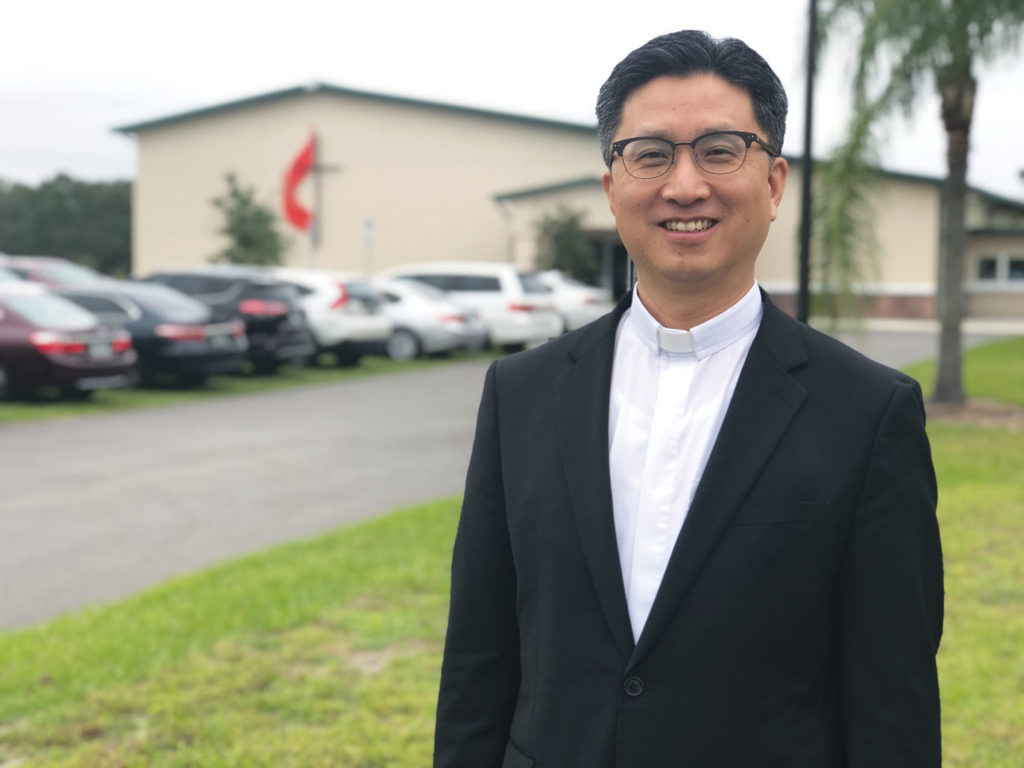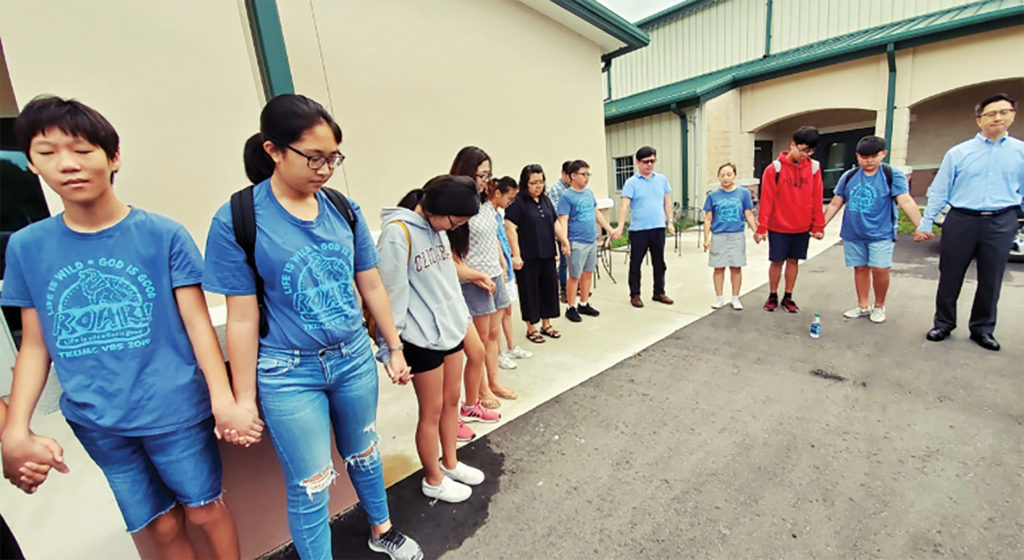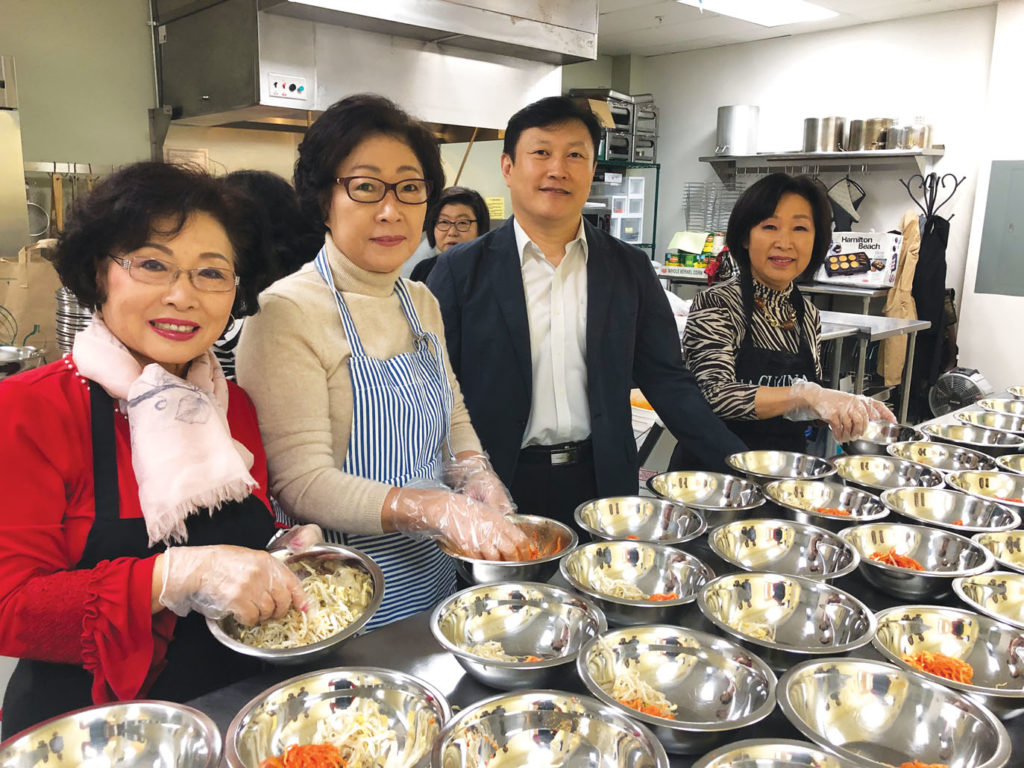

In an age when many churches are seeing declining numbers, the Tampa Korean United Methodist Church (UMC) on County Line Rd. in Wesley Chapel continues to flourish.
Since outgrowing its previous location in Tampa and electing to take over the space previously occupied by the Crossroads Community Church in 2014, the Tampa Korean UMC has grown from 150 members to more than 400.
That growth led to a $1.5-million expansion last year — a debt paid in full by a fund-raising campaign — and more expansion could be on the way.
“We are still growing,” says Pastor Rev. Dr. Sueng Lin Baik, the church’s Pastor since 2010.
The secret to the church’s success, he says, is providing a spiritual home to New Tampa and Wesley Chapel’s Korean community, as well as opening the doors to others with English-language services as well.
“I am blessed to be able to serve a church that continues to grow,” says Pastor Baik.
While there are traditional Korean services every day at 5:30 a.m., a typical Sunday sees the parking lot slowly fill with eager churchgoers.
They will tell you to come, sit down, and enjoy some bibimbap after church services are over at noon.

Pastor Baik and his staff have successfully gone back to an old time concept — ecclesia — which simply means a gathering of people. Whether or not groups of people gather at the newly expanded activity wing for interesting and meaningful fun things to do, or if they meet in private homes for singing, eating, praying and study, church activities are accomplished on a week-long basis.
This has the effect of doing what churches like to say they are in the business of doing — serving the needs of people in times of crisis or offering due congratulations for achievement. Having an early-warning system built in, with groups such as this, makes the church seem like far more than just a place of worship.
With this powerful degree of unity built in, along come the two major components Korean people have traditionally loved most — food and music.
For centuries, Koreans back in their homeland have fallen back on wonderfully prepared food and the sanctity of song, no matter the hard times. The local Korean community has core values here in Florida.
“Music is my life,” says Susan, a Zion Choir member.
“I don’t have a musical background,” says Hyun-su Kim. “I sing because God gave me a second chance and I can sing in service to God.”
Sonia, a powerhouse of a first soprano, also says she loves to sing: “It’s a Korean thing.”
The Zion Choir can beautifully render tunes as moving as “Give Thanks” to modern compositions of Christian music rife with zesty harmonies and fancy piano keyboarding.
At church, they sing in Korean. If they were performing elsewhere, it would be in English. It matters little which language they employ when it comes to their precious music.
This notion of singing heavenly tunes for Korean-Americans is likely a product of that “Korean thing” of adoration of music and lifting one’s voice to heaven in song. Indeed, Koreans adapted with enthusiasm to the general style of American worship and this has changed the fabric of that formerly heavily Confucian nation.
Now, churches of every denomination are everywhere in South Korea, including Mormon, Jehovah’s Witness, Pentecostal, and the more traditional Catholic, Baptist and Methodist. Of course, in Florida they are here as well, with a Korean slant but dogmatically identical, no matter the country.
So, a kind of reverse missionary work has happened. It’s common for visiting pastors from many places and countries to come to church and have a chance to preach. Visitors from Korea who come to Tampa will likely reserve a Sunday date for a church service here if they prefer the liberal principles of this Protestant faith.

Thus, there are three prime reasons for the church’s expansion: Unity, fellowship, and service.
The Tampa Korean UMC Church faithful are perfectly willing to commit time a day ahead and go into the church kitchen to cook and prepare for the next day’s post-service fellowship.
Jun-sung Kim is the man in charge of what is often a prodigious weekly project of buying and getting the proper ingredients, making sure the team is in place, and firing up the kitchen stoves to cook food in mass quantities.
“We love the fellowship,” Kim says. “This past Sunday, we served 270 people, but in winter it will probably go up to 300 or more.”
This food is carefully prepared and approximates Korean food served in restaurants. For those in the know, specialties that the congregants regularly feast on after church include japchae (glass noodle stir fry), ssambap (rice lettuce wraps), bulgogi (grilled beef), bibimbap (a bowl that combined rice, seasoned vegetables, meat, egg and a variety of other toppings) and galbitang (beef short rib soup).
The traditional Korean side dishes will be there too, like kimchi, rice and pickled radish. And, listeners may hear a congregant slide from one language to another at any time.
“People here come from all over,” says Pastor Baik. Common places of origin for congregants are from anywhere in South Korea, as well as California, Illinois and New York state. Many personal backgrounds were in Buddhism. Some of the older congregants were born in North Korea before there was a North Korea.
This past summer, the church hosted a large contingent of Christians who made it out of the repressive North Korean state. These people have had a much harder time learning English, due to the educational restrictions and liabilities of the North. But, they love the notion of religious freedom and were amazed at the size of the fellowship hall at TKUMC and the graciousness of the congregants.
“It’s my job to get a kind of synergy here,” Pastor Baik says. By that, he is referring to the tricky and seemingly neverending task of melding older and newer approaches to the Bible’s meaning, along with the use of music and singing, which is so generationally oriented.
Pastor Erik Sue is a player in getting this synergy going with an English-only service. He tends to serve the younger crowd and caters to their urge to do upbeat Christian music in English that employs a “band-style” approach.
So, what can you expect if you show up for a service at Tampa Korean United Methodist Church?
You will have contact with folks who go back and forth between two complex languages without missing a beat. You may have your name mentioned and a song sung your way by the congregation, led by Pastor Baik. And, best of all, you are immediately ushered post-service into the gigantic fellowship hall with a plateful of superb Korean vittles, where you can chat and chew to your heart’s delight.
Not a bad way to spend a Sunday.
The post Korean Church Continues To Grow appeared first on Neighborhood News.

Customer Reviews
Thanks for submitting your comment!